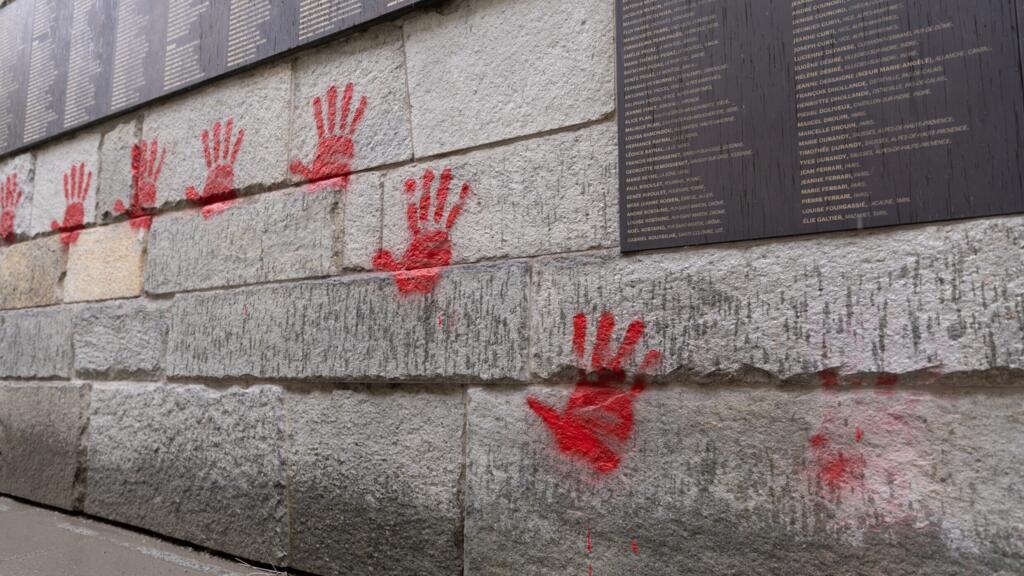Four Bulgarian Nationals Sentenced for Vandalizing Shoah Memorial with 'Red Hands'
Four Bulgarians arrested for vandalizing Paris' Shoah Memorial with red hand tags are sentenced to two to four years in prison amid suspicions of Russian-linked foreign interference and antisemitic motives.
- • Four Bulgarian men sentenced to 2-4 years for tagging 'red hands' on the Shoah Memorial in May 2024.
- • Sentences: Filipov and Milushev - 2 years each, Ivanov - 4 years, Angelov (in absentia) - 3 years.
- • Court recognized the antisemitic nature of the vandalism linked to victim's religion.
- • Connections with Bulgarian nationalist and pro-Russian groups were revealed; DGSI suspects foreign destabilization attempt.
- • New foreign interference laws could not be applied retroactively to this case.
Key details
On October 31, 2025, the Paris correctional court sentenced four Bulgarian nationals to prison terms ranging from two to four years for vandalizing the Shoah Memorial in May 2024. The defendants tagged approximately 35 red hands on the Holocaust memorial during the night of May 13-14, an act the court recognized as antisemitic and linked to the victim's religious affiliation.
Georgi Filipov and Kiril Milushev, identified as the direct executors, received two-year prison sentences each. Nikolay Ivanov, seen as one of the masterminds, was sentenced to four years, while Mircho Angelov, considered another key organizer who remains at large, was sentenced in absentia to three years. All four were also permanently banned from entering France.
During the trial, Filipov admitted using stencils for the tagging, citing financial hardship as his motive. Milushev described himself as influenced by his childhood friend Angelov. Ivanov claimed ignorance of the antisemitic intent, asserting he merely helped Angelov. The investigation linked the group to Bulgarian nationalist circles and contacts with pro-Russian organizations, though Ivanov denied pro-Russian leanings.
French intelligence services, including the Directorate General for Internal Security (DGSI) and Viginum, indicated the vandalism was potentially part of a broader foreign destabilization campaign involving Russian proxies. They suggested the act aimed to exploit France’s social divisions by manipulating public opinion. However, the court could not apply newer laws concerning foreign interference because those laws were enacted after the incident.
This case marks the first of several linked to suspected foreign interference in France’s social and religious fabric, reflecting wider concerns over external attempts to exacerbate identity fractures in the country.
The ruling largely followed the prosecutor’s recommendations, emphasizing the antisemitic nature of the crime and its context within international interference efforts.
This article was translated and synthesized from French sources, providing English-speaking readers with local perspectives.
Source articles (4)
Source comparison
Latest news
France Returns the Djidji Ayôkwé Talking Drum to Côte d'Ivoire After Over a Century
Record 37 Days of Rain Triggers Ongoing Severe Flooding in Western France
Political Divisions and Social Tensions Intensify Following Quentin Deranque’s Death in Lyon
French Economy Minister Calls for Full Insurance Industry Mobilization Amid Devastating Storm Floods
France Boosts Social and Solidarity Economy with New Tools and Potential Tax Reforms in 2026
Saint-Nazaire Mayor Condemns Vandalism of Two Political Offices as Attack on Democracy
The top news stories in France
Delivered straight to your inbox each morning.



